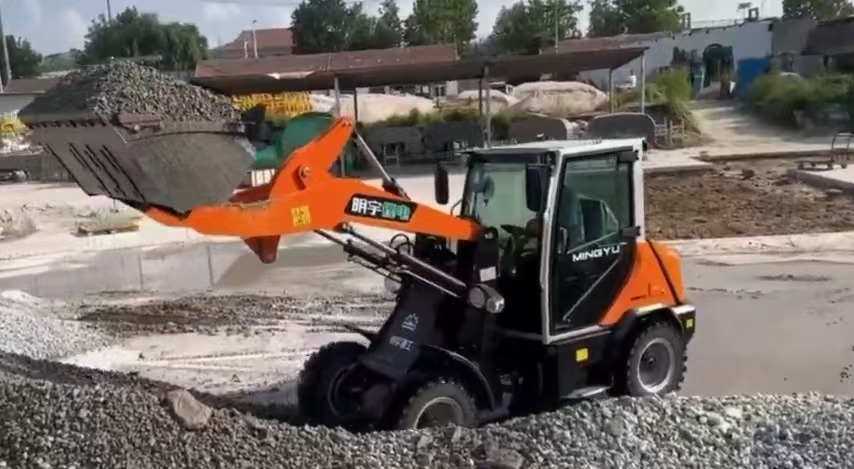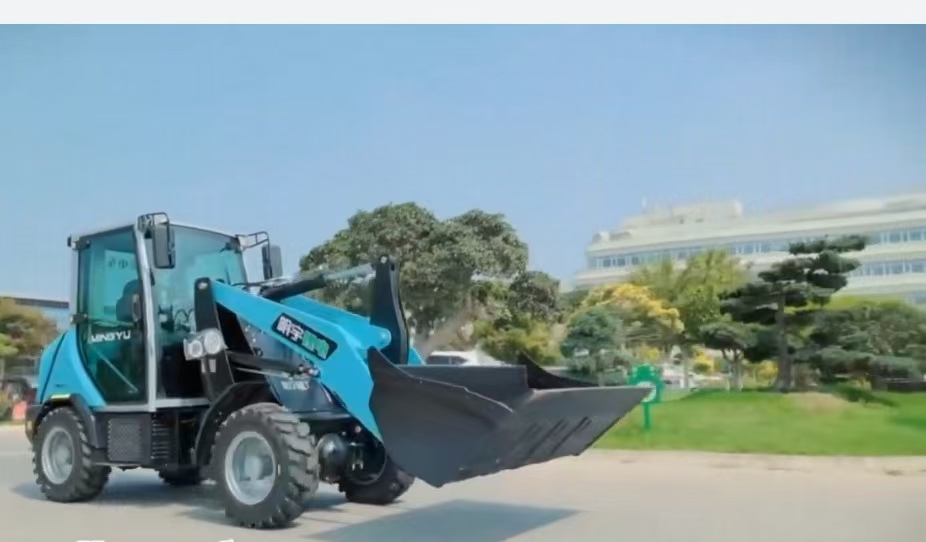Introduction
A wheel loader is a versatile piece of heavy equipment used in a variety of industries. It's characterized by a large front bucket attached to a powerful loader arm. This bucket can scoop up and transport materials, making it an indispensable tool for construction, mining, agriculture, and waste management.

Primary Uses of Wheel Loaders
Earthmoving and Excavation
- Clearing Land: Wheel loaders are used to remove vegetation, debris, and topsoil to prepare land for construction projects.
- Digging Trenches and Foundations: The bucket can be used to dig trenches for utility lines or foundations for buildings.
- Creating Embankments and Slopes: By moving earth and shaping the terrain, wheel loaders can create embankments for roads or slopes for landscaping.
Material Handling
- Loading and Unloading Materials: Wheel loaders are efficient at loading and unloading materials onto trucks, trains, or ships.
- Transporting Materials: They can transport materials within a site or from one site to another.
- Stockpiling Materials: Wheel loaders can create stockpiles of materials like gravel, sand, or coal.
Grading and Leveling
- Preparing Construction Sites: Wheel loaders can level the ground, creating a smooth surface for building foundations.
- Creating Level Surfaces: They can be used to create level surfaces for roads, parking lots, and sports fields.
- Landscaping and Gardening: Wheel loaders can move large amounts of soil and create various landforms for landscaping projects.
Mining and Quarrying
- Extracting Minerals and Ores: Wheel loaders are used to extract minerals and ores from open-pit mines.
- Transporting Materials: They can transport materials within the mine site, such as ore, rock, and overburden.
- Loading and Unloading Trucks: Wheel loaders load trucks with extracted materials for transportation to processing facilities.
Specific Applications in Different Industries
Construction Industry
- Road Construction and Maintenance: Wheel loaders are used for grading, leveling, and moving materials during road construction and maintenance projects.
- Building Construction: They are used for excavation, material handling, and site preparation.
- Infrastructure Development: Wheel loaders play a crucial role in building infrastructure projects like bridges, tunnels, and dams.
Agriculture Industry
- Land Preparation: Wheel loaders can be used to clear land, move soil, and create raised beds for planting.
- Material Handling: They are used to transport feed, manure, and other materials on farms and ranches.
- Snow Removal: In regions with heavy snowfall, wheel loaders can be equipped with snowplows or buckets to clear roads and driveways.
Waste Management Industry
- Waste Disposal and Recycling: Wheel loaders are used to move and load waste materials into compactors and other equipment.
- Debris Removal and Cleanup: They are used to clear debris from construction sites, natural disasters, and accidents.
Future Trends and Innovations
- Autonomous Wheel Loaders: Self-driving wheel loaders can increase productivity and safety.
- Electric and Hybrid Wheel Loaders: These eco-friendly machines reduce emissions and operating costs.
- Advanced Telematics and Monitoring Systems: These systems can track machine performance, fuel consumption, and maintenance needs.
Conclusion
Wheel loaders are versatile machines that play a vital role in various industries. Their ability to handle heavy loads, maneuver in challenging terrain, and perform a wide range of tasks makes them indispensable for construction, mining, agriculture, and waste management. As technology continues to advance, wheel loaders will become even more efficient and environmentally friendly, further solidifying their position as essential tools in modern industries.
Post time:Nov.06.2024

